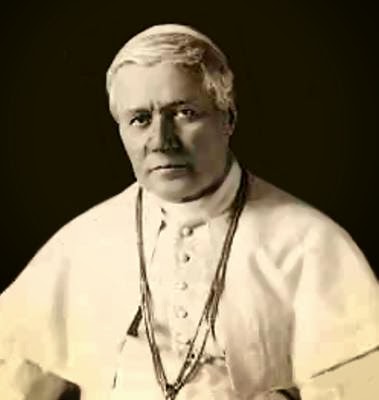Last month we looked at
5 Great Prayers to Say Before Mass, today I thought we'd continue in the same spirit with 5 more great prayers, this time to be said immediately before and/or after receiving the Lord at Mass in the Eucharist.
Just like last time, these prayers come from the ever handy missal produced by the Coalition in Support of
Ecclesia Dei (
get yours HERE), and, thus, are presented for those who attend the "traditional Latin Mass", but, because Christ is just as present in the Ordinary Form Mass at your local parish, they work just as well at any Mass.
These prayers will help you to focus on the Real Presence of Christ and have helped me immensely to grow in appreciation for the Sacred Mysteries (yes, I admit it, I try to ignore the "Communion Hymn" these days, as I find it distracting). Feel free to adjust to a more modern sounding English, if you don't enjoy the Old English feel of the prayers below.
1. Prayer of St. Ignatius Loyola
TAKE, O LORD, all my liberty, receive my memory, my understanding, and my whole will. All that I am and all that I have come to me from Thy bounty; I give it all back to Thee, and surrender it all to the guidance of Thy holy Will. Give me Thy Love and Thy Grace; with these I am rich enough and ask for nothing more.
2. Anima Christi (Card. Newman translation)
SOUL OF CHRIST, be my sanctification.
Body of Christ, be my salvation.
Blood of Christ, fill all my veins.
Water of Christ's side, wash out my stains.
Passion of Christ my comfort be.
O good Jesus, listen to me.
In Thy wounds I fain would hide,
Ne'er to be parted from Thy side.
Guard me should the foe assail me.
Call me when my life shall fail me.
Bid me come with Thee above,
With Thy saints to sing Thy love
World without end. Amen.
3. Prayer of Saint Thomas Aquinas
I give Thee thanks, O holy Lord, Father Almighty, eternal God, Who hast vouchsafed, not for any merits of mine, but solely out of the condescension of Thy mercy, to satisfy me a sinner, Thine unworthy servant, with the precious Body and Blood of Thy Son our Lord Jesus Christ.
I pray that this holy Communion be not to me a condemnation unto punishment, but a saving plea unto forgiveness. May it be unto me the armor of faith and the shield of good will. May it be the emptying out of my vices, the extinction of all concupiscence and lust, the increase of charity and patience, of humility and obedience, and of all virtues; a strong defense against the snares of all enemies, visible and invisible; the perfect quieting of all my evil impulses, both fleshy and ghostly; a firm cleaving unto Thee, the one true God; and a pledge of a blessed destiny.
And I beesech Thee, that Thou wouldst vouchsafe to bring me, a sinner, to that ineffable banquet, where Thou, with Thy Son and the Holy Ghost, art to Thy saints true light, fullness of content, eternal joy, gladness without alloy and perfect bliss. Through the same Christ our Lord. Amen.
4. Thanksgiving after Communion
MY GOOD JESUS, I pray Thee to bless me; keep me in Thy love; grant me the grace of final perseverance. Help me to become a saint. Safeguarded by Thee in soul and in body, may I never swerve from the right road, but surely reach Thy kingdom, where - not in dim mysteries, as in this dark world of ours, but - face to face we shall look upon Thee. There wilt Thou satisfy me with Thyself and fill me with such sweetness that I shall neither hunger nor thirst forevermore: Who reignest world without end. Amen.
5. Pour your Heart out to Jesus
After saying a few of the prayers above, simply pour your heart out to the Lord. This moment, right after receiving Him in holy Communion, is the closest you will ever be to Him, this side of Heaven. Unburden yourself. Speak to Him. Even just repeat 'I love you' over and over again. But don't just sit there in silence for, as St. Josemaria Escriva reminded us, "'Minutes of silence.' Leave silence for those whose hearts are dry." (
The Way, No.115)











